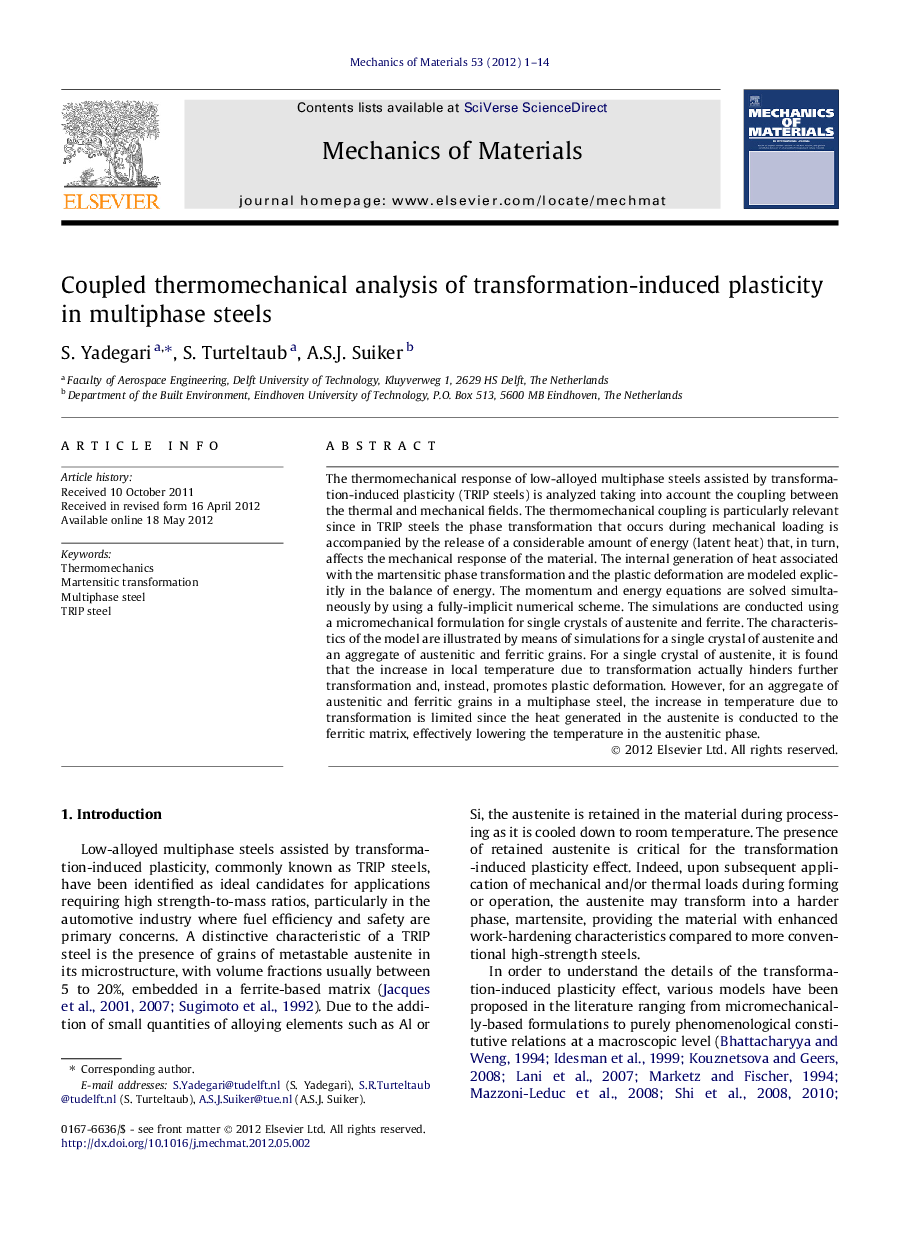| کد مقاله | کد نشریه | سال انتشار | مقاله انگلیسی | نسخه تمام متن |
|---|---|---|---|---|
| 802869 | 1467488 | 2012 | 14 صفحه PDF | دانلود رایگان |

The thermomechanical response of low-alloyed multiphase steels assisted by transformation-induced plasticity (TRIP steels) is analyzed taking into account the coupling between the thermal and mechanical fields. The thermomechanical coupling is particularly relevant since in TRIP steels the phase transformation that occurs during mechanical loading is accompanied by the release of a considerable amount of energy (latent heat) that, in turn, affects the mechanical response of the material. The internal generation of heat associated with the martensitic phase transformation and the plastic deformation are modeled explicitly in the balance of energy. The momentum and energy equations are solved simultaneously by using a fully-implicit numerical scheme. The simulations are conducted using a micromechanical formulation for single crystals of austenite and ferrite. The characteristics of the model are illustrated by means of simulations for a single crystal of austenite and an aggregate of austenitic and ferritic grains. For a single crystal of austenite, it is found that the increase in local temperature due to transformation actually hinders further transformation and, instead, promotes plastic deformation. However, for an aggregate of austenitic and ferritic grains in a multiphase steel, the increase in temperature due to transformation is limited since the heat generated in the austenite is conducted to the ferritic matrix, effectively lowering the temperature in the austenitic phase.
► The micromechanical behavior of transformation-induced plasticity steels is studied.
► The model includes a consistent coupling between thermal and mechanical fields.
► Heat due to transformation and plasticity is modeled in the balance of energy.
► Transformation rate decreases and plasticity increases with higher temperature.
► Increase in austenitic temperature is limited due to conduction to ferritic matrix.
Journal: Mechanics of Materials - Volume 53, October 2012, Pages 1–14